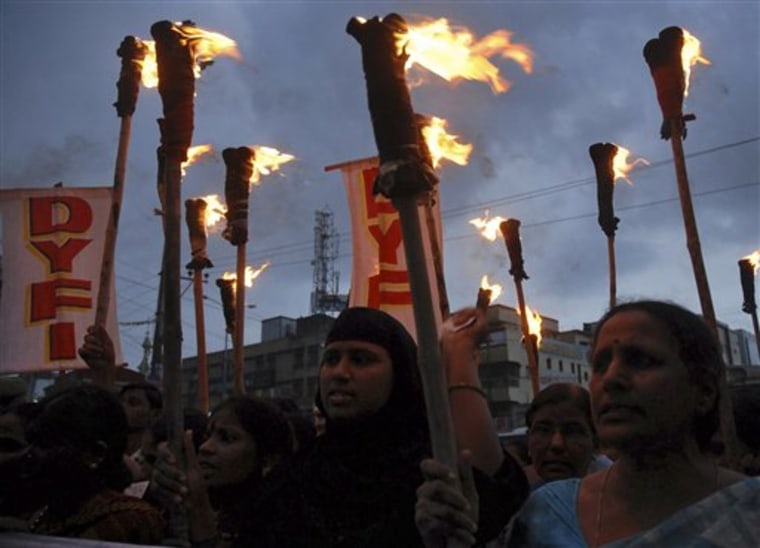India’s government survived a hotly contested confidence vote Tuesday, clearing the way for it to finalize a landmark nuclear energy deal with the United States.
The government won with 275 voting for it and 256 against. The number of abstentions was not immediately clear.
The vote capped a week of intense politicking that saw the government rename an airport for a lawmaker's father, promise a high-level job to another, and — rival politicians allege — hand out millions of dollars to many others in an effort to survive.
Both sides did whatever they could to muster their forces. One ailing lawmaker was wheeled in on a gurney, and a handful jailed for crimes ranging from murder to extortion were temporarily released from prison so they could vote.
If the government had lost, the nuclear pact — seen as the cornerstone of a budding strategic partnership between New Delhi and Washington — would likely have been finished.
Energy-hungry economy
But Prime Minister Manmohan Singh had no choice but to call the confidence vote after communist political parties withdrew their support for his government to protest the nuclear deal, which they fear will draw New Delhi too close to Washington.
Singh has argued that India, which imports 75 percent of its oil, needs the deal to power its energy-hungry economy.
Under the agreement, India would open its civilian reactors to international inspections in exchange for nuclear fuel and technology, which it has been denied by its refusal to sign the Nuclear Nonproliferation Treaty and testing of atomic weapons.
Singh opened the debate on the confidence motion Monday, telling lawmakers the deal "was taken in the full confidence that we are doing so in the best interests of our people."
In Washington, White House press secretary Dana Perino said the Bush administration continues to support the U.S.-India nuclear deal.
“They’re going to need a lot of energy, and one of the best ways to do that is through clean burning nuclear energy, not through coal-fired power plants, until we have technology that can help us reduce pollution as well as reduce greenhouse gas emissions,” Perino said.
“There’s more support here than there, at this time,” she added.
Cold War alliances
But the agreement has also challenged the views of many in India's political class, whose wariness of the United States dates back to the Cold War, when New Delhi had warm ties with the Soviet Union.
The communists had provided the government with its parliamentary majority, and to replace them the Congress Party cut a deal with the regional Samajwadi Party, a one-time enemy.
But its coalition was still short of an absolute majority in the 543-seat lower house of Parliament, which led to the dealmaking seen in the past week.
